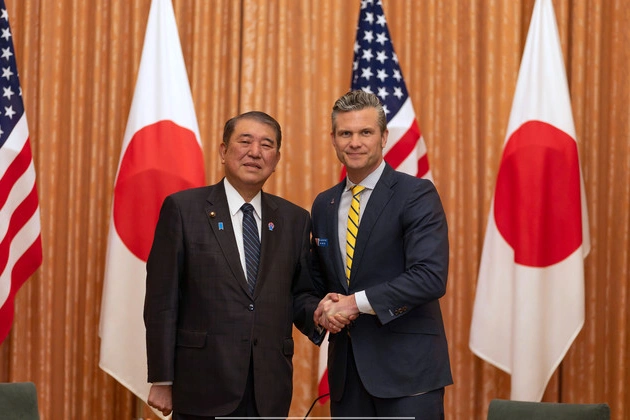
Japan has emerged as a pivotal ally in countering the increasing assertiveness of China in the region, as highlighted by U.S. Defense Secretary Pete Hegseth during his recent visit to Tokyo. Hegseth emphasized Japan’s significance as an indispensable partner in deterring Communist Chinese military aggression, underscoring the need for both countries to enhance their military capabilities.
Strengthening Defense Cooperation
During the discussions between Hegseth and Japan’s Defense Minister Gen Nakatani, plans were put in motion to accelerate joint missile development and production, including Advanced Medium-Range Air-to-Air Missiles (MRAAM) and SM-6 surface-to-air missiles. This collaboration aims to address munitions shortages and bolster the defense industries of both nations.
Enhanced Operational Capabilities
As part of the strategic realignment, the command and control structures of both the Japanese military and U.S. forces in Japan have been upgraded under the Biden administration. This reorganization is designed to enhance joint operational capabilities and response readiness.
The establishment of the Japan Joint Operations Command (JJOC) and the transformation of U.S. Forces Japan into a unified operational command signify a concerted effort to streamline coordination and facilitate rapid joint operations.
Focus on Deterrence
Hegseth’s announcement of the new “war-fighting headquarters” in Japan reflects the shared commitment of the U.S. and Japan to maintain peace and preparedness in the face of potential conflicts. Both nations recognize the importance of sustaining robust deterrence measures, especially in critical regions such as the Southwestern islands.
Emphasizing the need for credible deterrence in the Indo-Pacific, Hegseth and Nakatani reaffirmed their dedication to bolstering defense postures and cooperation, particularly in areas near Taiwan and the disputed territories in the East China Sea.
Regional Stability and Cooperation
Amidst concerns over China’s territorial ambitions and military actions, the strong alliance between the U.S. and Japan remains a cornerstone of regional stability. The enduring partnership between the two countries extends to commemorating shared history, as evidenced by their joint memorial events.
As both nations navigate complex geopolitical challenges, including tensions over Taiwan and maritime disputes, the commitment to enhancing defense capabilities and fostering cooperation underscores their shared vision for a secure and prosperous Indo-Pacific region.











